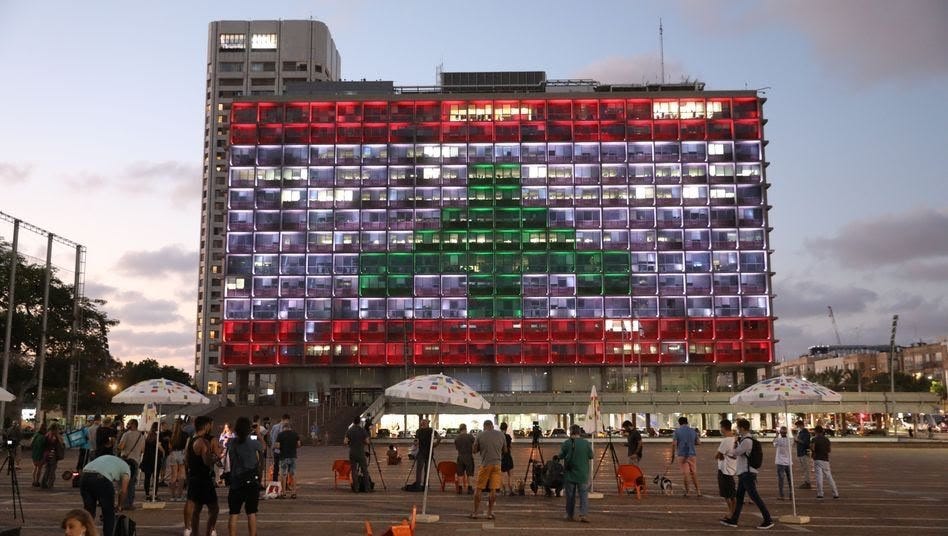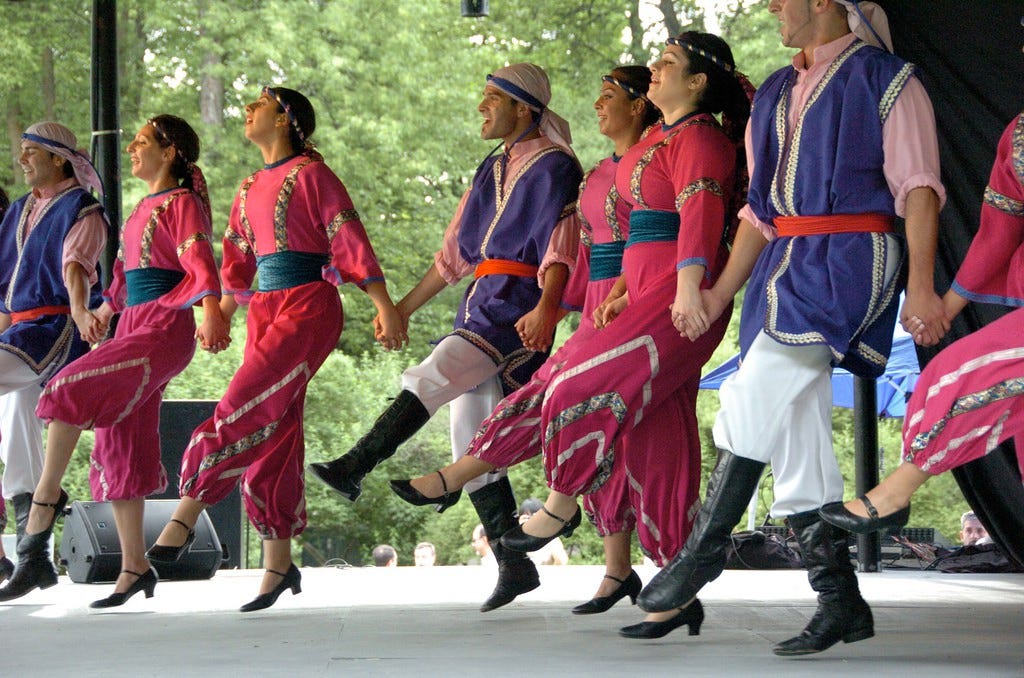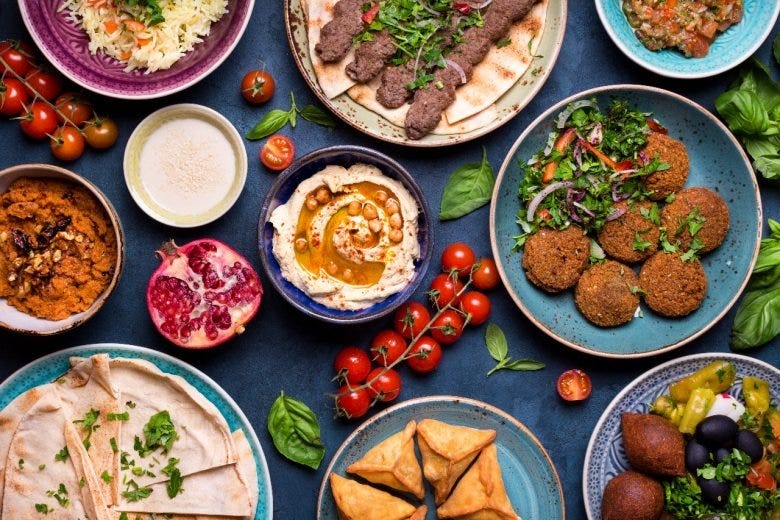The Lebanese Way of Transcending Catastrophe
Lebanon's Historical Track Record of Turning Hardships Into Their Advantage Is a Model For Perseverance and Transcending Catastrophe
“Spare me the political events and power struggles, as the whole earth is my homeland and all men are my fellow countrymen.” - Khalil Gibran, Lebanese-American Poet

The past few years have been unkind to Lebanon and its people.
corruption charges , inflation, civil unrest , Covid-19, and the recent explosion in the port of its capital city, Beirut, have been devastating to the region.
It certainly seems like the worst of the world’s misfortunes have been raining down on this pearl of the mediterranean. But Lebanon is no stranger to difficult times, and is poetically fluent in the art of turning trials into triumph.
Earliest records of civilization in Lebanon predates recorded history. Lebanon was home to the Phoenicians, a maritime culture that flourished from 3200 to 539 BC. The name Lebanon originates from Mount Lebanon , named after the Phoenician word Lbn meaning “white”. The symbol of Lebanon, in its name and on its flag, is found covering the country’s vast mountain range; The Lebanese Cedar tree, (Cedrus libani). The Cedar represents holiness, eternity and peace and is mentioned seventy-seven times in the Bible ; "The righteous shall flourish like the palm tree, He shall grow like a cedar in Lebanon”. For every catastrophe Lebanon has faced, it came back stronger, its culture and people growing ever more creative , resilient and adaptive.
After having been conquered and under Ottoman rule for 400 years, under French Mandate after WWI, Lebanon finally gained independence in 1943 through the efforts of President Bechara El Khoury, prime minister Riad El-Solh, and minister of defence Emir Majid Arslan II. In the following decades Lebanon’s financial prowess , blossoming culture and thriving tourism industry Lebanon gained it the titles "Switzerland of the East” and Beirut praised as "The Paris of the Middle East".
Unfortunately tragedy struck again when a bloody civil war broke out in 1975, lasting 25 years, with wars with Syrian troops and Israel taking place. The country has been recovering steadily since, but with great difficulty and from great help from its influential and successful diaspora.
Lebanon can come back from this, stronger and more adapted than ever, its people free to pursue their wellbeing and happiness and left to their own devices to continue developing their world renowned culture.


Necessity forces us to adapt, and surprisingly creativity tends to flourish under such circumstances. Hard times ,whether financial , natural or manmade have been breeding grounds for pivotal chance, as it brings to light the hidden challenges in our lives. Lebanon has historically seized its opportunities to adapt creatively and transcend its circumstances with some of the most unique and admirable cultural traits in the world.
These challenges are the necessity of life, and these ‘stressors’ are vital for the improvement of our species, within every cell in our bodies and collectively , life moves forward in proportion to its response to these challenges. Same way our immune system strengthens when we are exposed to vaccines, the same way we learn to ride the bike after falling down, and the same way a muscle grows from little “shocks” we inflict on it when we lift weights. Lebanese risk analyst and best-selling author Nassim Taleb named this discovery and put it best in his best-seller under the same name Antifragile;
“This is the central illusion in life: that randomness is a risk, that it is a bad thing.”
“[T]he antifragile grows from disorder”
“Depriving political (and other) systems of volatility harms them, causing eventually greater volatility of the cascading type.”
Perhaps that is what we are witnessing unfold in the world today, after decades of booming economies, technological breakthrough, and a cushy life, we are reminded once again that no, we do not have control over our environment, nature reigns supreme and always will , we are humbled once again. But we can learn from this and live in harmony with the world from which we came from, this no cliche.
Have a lovely day, and don’t forget, as they say in Lebanon ;
"كل حادث له محادثة" = every accident has a conversation.
To start your day off with a smile and some energy, here is a Lebanese dance and song, celebrated at a Lebanese wedding in Canada. The Dabke.
Enjoy.
Consider donating to one of the relief efforts below :
Lebanese Red Cross
https://supportlrc.app/wire-transfers/
Lebanese Food Bank
https://donate.lebanesefoodbank.org/
For Lebanese citizens abroad (diaspore) wanting to donate directly:
https://www.justgiving.com/crowdfunding/impact-lebanon
Beit Al-Baraka (Free Supermarket)
https://beitelbaraka.net/donation/pay/
Islamic Relief Canada
https://www.islamicreliefcanada.org/appeals/lebanon
Resources
Antifragile by Nassim Nicholas Taleb
The content in this article was heavily influenced by the Book of Lebanese risk analyst and author Nassim Nicholas Taleb’s Antifragile. I have no words to describe how important this book is, no book in my life has changed the way I see the world and had a genuinely positive effect on my life as this book has. I consider it the ‘Bible’ of the postmodern world.
You can purchase Antifragile right here at : https://amzn.to/2YC1m9m
For more of Taleb’s work : https://amzn.to/3hxHawT
The Prophet by Khalil Gibran
The Prophet by Lebanese-American Poet Khalil Gibran. The third best-selling work of poetry behind only the 4th century BC work of Lao Tzu the Tao Te Ching, and the works of William Shakespeare. I take this book with me everywhere and every time I travel. Timeless wisdom and the most beautiful work of poetic art I have, and likely will ever read.
You can get the soft cover or kindle version here https://amzn.to/3jckjHm
The Consuming Instinct by Gad Saad
Not directly included in the article but still greatly influenced my thinking written by a hometown intellectual hero of mine , Lebanese born Canadian Professor Gad Saad, professor of Evolutionary Psychology at the John Molson School of Business at Concordia University and founder of The Saad Truth podcast. He applies insight and his own findings from evolutionary psychology to marketing and consumer behaviour. His book The Consuming Instinct blew my godamn socks off, and I have become a much more responsible and rational consumer after reading his work. After reading this you will be able to “see through the material matrix” if you will, but seriously, it’ll change you see EVERYTHING. See description below ;
“While culture is important, the author shows that innate evolutionary forces deeply influence the foods we eat, the gifts we offer, the cosmetics and clothing styles we choose to make ourselves more attractive to potential mates, and even the cultural products that stimulate our imaginations (such as art, music, and religion). The book demonstrates that most acts of consumption can be mapped onto four key Darwinian drives-namely, survival (we prefer foods high in calories); reproduction (we use products as sexual signals); kin selection (we naturally exchange gifts with family members); and reciprocal altruism (we enjoy offering gifts to close friends)”
Please look into buying the hardcover or Kindle version here : https://amzn.to/34HQ5YK


